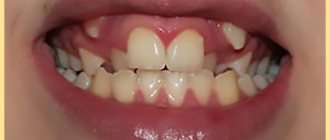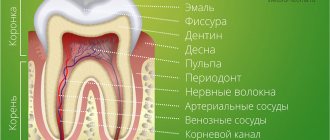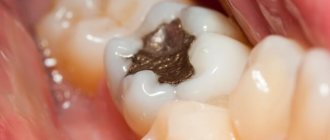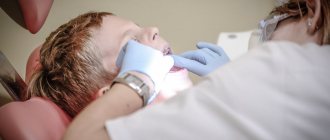Most often, the period when teeth are cut coincides with the period of revaccinations or first vaccinations in children. In this connection, many parents are wondering, is it possible to get vaccinated during teething?
Most doctors are of the opinion that during this period the baby’s immune system should not be overloaded. But not everything is so simple.
Before you get vaccinated
Taking into account the fact that in the vast majority of cases, vaccinations are well tolerated by healthy children without any preparation or pre-treatment, the most important point in preparing a child for vaccination is to determine contraindications to vaccinations, that is, those cases of illness in a child in which vaccination can give serious adverse reactions. Contraindications and precautions for vaccination; in some cases, vaccination in children is either strictly prohibited or should be postponed to a later date. In order to correctly assess contraindications and precautions for vaccination in a child, it is important to follow the vaccination calendar and know in advance which vaccination should be given to the child and when. Before vaccinating your child and on the day of vaccination, read what contraindications and precautions are associated with the administration of a particular vaccination and make sure that the child does not have any contraindications for the vaccination. If you find it difficult to determine certain contraindications or precautions (for example, how dangerous a child’s cold or cough is), show it to your doctor. You should not blindly refuse vaccination because of a slight runny nose or cough - this will only disrupt the vaccination plan.
Vaccination and teething
Usually, the first baby teeth begin to appear in babies at 5-6 months. At this age, they are vaccinated against tetanus, whooping cough, diphtheria, pneumococcal and hemophilus influenzae infections, polio and hepatitis B. The next “vaccination” stage is at the age of 1 year (measles, rubella, mumps). At 15 months, booster vaccination against Streptococcus pneumoniae (pneumococcal infection) is required. And at the age of 1.5 years - from polio, diphtheria, whooping cough, tetanus, hemophilus influenzae infection.
Important! If some stage of vaccination was missed, for example, due to the child’s illness, then the vaccine can be given at any time from 6 to 20 months. The calendar contains routes for this purpose for those who have not previously been vaccinated. It is also important to follow the sequence of vaccine administration.
In addition, the calendar contains vaccinations that are given only when indicated: for example, for children at risk for hemophilus influenzae infection, hepatitis B or tuberculosis. Thus, for babies at risk for hepatitis B, the vaccine is administered three times in the first two months of life, as well as at the 12th month. Children at risk of hemophilus influenzae infection are vaccinated at the third, fifth and sixth month and revaccinated at the 18th month.
Treatment of fever and prevention of allergies after vaccination
An increase in temperature is a normal reaction of the child’s body to a vaccination, which means that the immune system has responded to the vaccine and is beginning to develop immunity (however, the absence of an increased temperature after vaccination does not mean that the vaccination was ineffective). In the case of completely healthy children, the temperature should not be lowered after vaccination if it does not exceed 38.5C. In cases of a more significant increase in temperature, and also when the temperature remains at 38.5 C in the evening, the child should be given an antipyretic. To treat fever after vaccination, it is recommended to use Paracetamol. Aspirin should never be used as an antipyretic in children.
In the case of children with a tendency to febrile convulsions, treatment should be started when the temperature rises above 37.5 or the child should be given an antipyretic before the temperature appears, if so advised by the neurologist observing the child.
Prevention of allergic reactions after vaccinations is indicated only in the case of children prone to developing allergies. In such cases, it is recommended to use Suprastin or another antihistamine as prescribed by a doctor.
When vaccine administration coincides with teething
First you need to look at the vaccination calendar and compare its data with the age when children begin to erupt milk or permanent teeth. This period will add trouble to parents, but it is during this period that a solid foundation is laid for the little person’s immune system.
It is important to remember that the appearance of teeth, although painful, is still a natural condition for the body, and therefore is not an indication for canceling vaccinations. In addition, most vaccines are easily tolerated by children. An exception may be the DTP vaccine (adsorbed pertussis-diphtheria-tetanus). It usually causes mild discomfort and a slight increase in temperature. However, these symptoms disappear after 1-2 days.
Treatment of redness and swelling at the injection site
Most vaccinations result in more or less severe redness or swelling at the injection site. The most severe local reaction to vaccination is observed in the case of DTP (redness, swelling and pain at the injection site) and BCG (formation of a long-lasting non-healing ulcer). For all types of vaccinations, it is recommended to avoid any local treatment for redness or swelling at the injection site. If the child scratches the injection site, it can be covered with a light gauze bandage. At the site of the DTP, a compaction often forms, located deep in the muscle - a “bump”. Often such a lump is painful, and the child easily limps on one leg (if the vaccine was injected into the thigh). The formation of a dense “bump” after DPT is considered a normal reaction and does not require any treatment. Within a few weeks, the lump will resolve on its own.
Vaccinations and the appearance of permanent teeth
The next stage of teeth change in children begins at 6-7 years old, and at the same time a new wave of vaccination starts. The child is again vaccinated against measles, rubella, mumps, as well as against tetanus and diphtheria. In addition, flu vaccinations become annual (they are optional).
During this period, children who were not vaccinated in the first year and a half of life and who have not had these diseases, that is, who do not have a formed immune response to pathogens, are also vaccinated.
Doctors do not forget those who should receive the vaccine according to indications. These are children at risk for tuberculosis. They are revaccinated in the sixth or seventh year of life.
Video on the topic
Can vaccinations be given when a child is teething? Answers in the video:
Before DTP vaccination, it is forbidden to give your child foods with increased allergenic properties. The day before the procedure, it is advisable to take a general blood and urine test, which will help determine the presence of hidden inflammation. Such tests are prescribed mainly for sick children, as well as young patients with congenital pathology of internal organs.
If a child has pathological symptoms (regardless of whether they are associated with teething), the pediatrician must draw up an individual vaccination plan for the baby and gives preference to immune drugs with minimal risk of complications.
Prolonged teething
In general, teething is a normal physiological process for a small organism, but there are complications here too. Sometimes teething is delayed or becomes too painful: the baby’s gums become swollen, a high temperature rises (above 38 degrees Celsius), a runny nose, and signs of a cold appear. This condition can be considered a reason to postpone vaccination, but not refuse it!
“All of our incisors were cutting normally, but there was a problem with the molars: the gums were swollen, the temperature was rising, drool was flowing like a bucket. We were supposed to be given DPT, but the pediatrician said it was better to wait until the swelling went away and teeth showed. Then it will seem like it will be easier, and you can give DPT, because it itself is too heavy for children’s immunity.”
user Nastena, review from the babyblog.ru forum
At the same time, prolonged teething is a reason to consult a dentist. Perhaps at this stage the doctor will prescribe treatment that will reduce pain and allow the child to go through this period easier.
In addition, the cause of deterioration of the condition can be infectious (stomatitis) or fungal (candidiasis) lesions of the oral mucosa, so it is important to begin treatment as quickly as possible so that the disease does not develop into a more severe form and does not affect other organs and tissues.
Indications for postponing vaccination
Since it is better to vaccinate a healthy body, parents should monitor the condition of their son or daughter in the days before vaccination. If a child develops at least one of the following signs, it is better to wait until he or she is completely healthy to get vaccinated. If there are several symptoms, then this is a reason to call a doctor and get tested.
Indications for postponing vaccination:
- apathy, excessive sleepiness, rapid fatigue of the child,
- disruption of the gastrointestinal tract: vomiting, diarrhea, constipation, flatulence, colic, etc.,
- signs of a cold: fever, runny nose, cough, redness of the pharyngeal mucosa,
- skin rashes,
- local infectious lesions: conjunctivitis, abscess, boil, etc.
- exacerbation of chronic diseases,
- severe fatigue: for example, during training or competitions.
Attention! It is important to distinguish between the concepts of “postponing vaccination” and “refusing vaccination”. In the first case, we are talking about postponing the date of vaccination due to temporary illness. In the second case, administration of the vaccine is not recommended for health reasons. These include an allergy to any component of the drug, diseases of an organ or system in an acute form, or the transition of an acute form to a chronic form, pathologies of the nervous or endocrine systems.
Five vaccination tips
Preparation for vaccination plays an important role during this difficult period. It depends on how the body reacts to the vaccine. Basic rules to follow:
- Only completely healthy children should be given the vaccine . If your child has recently been ill, it is better to postpone the procedure for a while. A weakened body is capable of giving a non-standard reaction.
- The lower the load on the stomach, the easier vaccination will be tolerated . You should never force a child to eat. 24 hours before visiting the vaccination office, you need to reduce the amount of food you eat. Two hours before vaccination, do not feed anything, only give water.
- When preparing your child for the clinic, you need to dress him according to the weather . It is undesirable for the baby to sweat.
- A few days before vaccination, you need to limit the child's social circle . Places with a lot of people should be avoided: transport, shops, various events.
- In the clinic, try to find a place where there are no people . It’s best to ask someone to get in line, and at that time take your baby for a walk outside.
Following the rules will help reduce the likelihood of negative reactions to the vaccine.
When to postpone vaccination
There are situations when doctors strongly recommend refraining from getting vaccinated during teething. These include:
- apathy;
- vomit;
- diarrhea;
- temperature increase.
These symptoms are characteristic not only of teething, but also of a large number of diseases. If there is at least one sign of the disease, you need to take a blood and urine test. Doctors recommend that if the baby’s condition worsens, postponing vaccination until the child’s health is completely restored.










